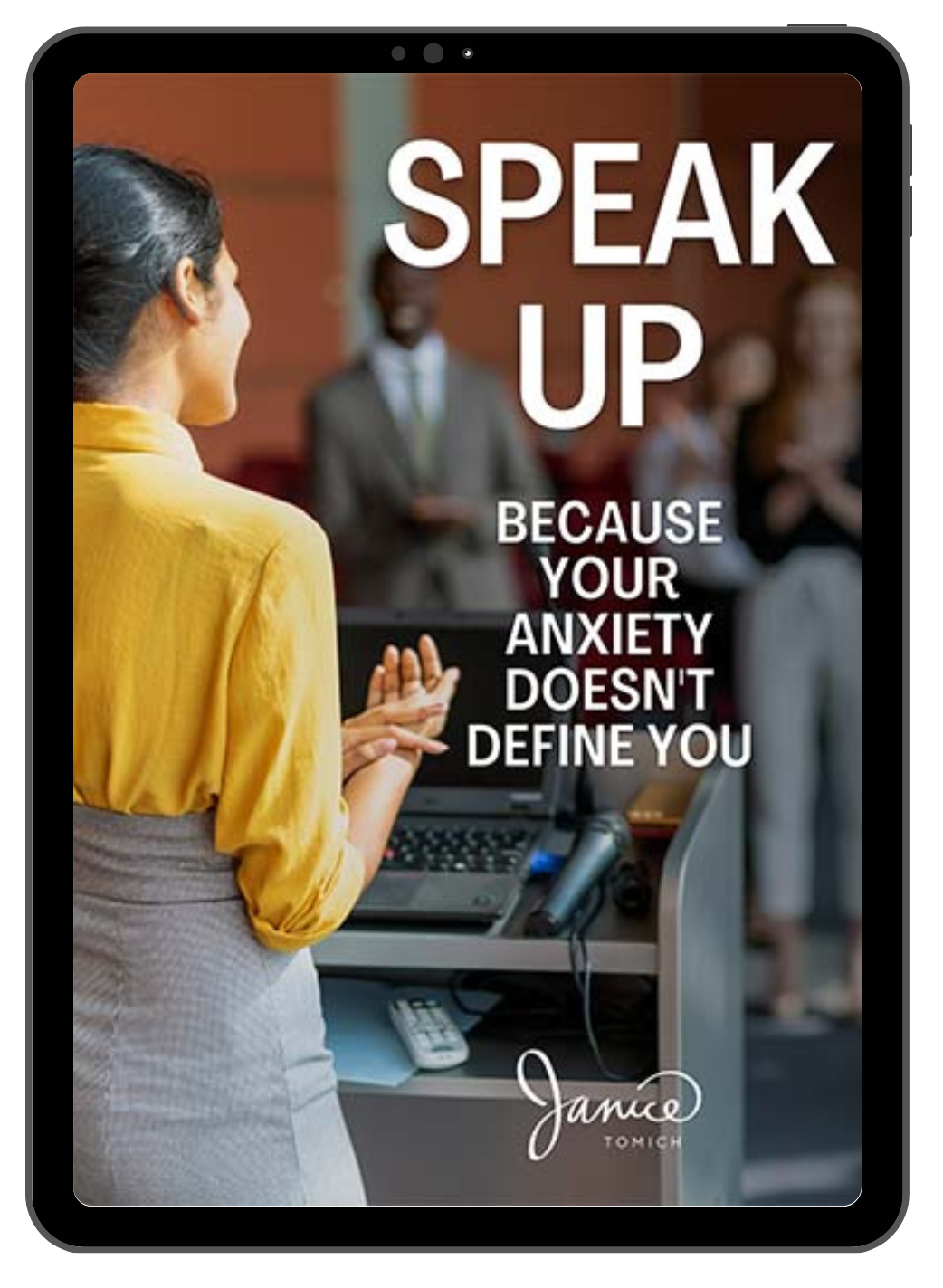The short direct flight I was booked on had been canceled. I was rerouted to deliver my public speaking seminar via a long and twisted path. The clothes I planned to wear were tumbling soaking wet in the dryer as I ran out the door to catch my rebooked flight.
Picture a slightly disheveled and determined woman doing a mad dash through my neighbourhood to catch the airport train (who may or may not have caused a few people to clear out of my way). When I finally sat in my seat and clipped the seatbelt together I was thinking about things that can go wrong even when you think you’ve made plan a, b, and c.
I’ve attended events where it’s evident that public speakers are struggling or aren’t well-received because they’ve missed elements in their planning. Here are five examples of missteps I often see and how to prevent them from happening to you.
Qualified feedback
It is easy to be a lone wolf and not ask for feedback. Our egos can be fragile and sometimes it’s hard to be on the receiving end of critique. However, exquisite presenters are the ones that openly receive public speaking feedback to learn what’s working and what isn’t. There is a caveat though. It needs to be qualified feedback. Find a colleague or coach that has had lots of experience public speaking and who clearly understands what separates public speaking excellence from status quo.
Separating your emotional response from critique can be uncomfortable. Try to think of feedback simply as data. It’s information only. Use the data while removing your ego from the equation.
Practice
It’s evident when a presenter hasn’t practiced. For those presenters that loudly proclaim, “Sorry folks. I haven’t had much time to focus on this. I’ll be winging it today”, I wish them luck. They’ll need it. Not to say how disrespectful the audience will think they are too.
I have never had a client say they wish they had practiced less. I know that your life is busy. When you’re on stage the cold fact is that your reputation is on the line. Well-practiced speakers set aside time to ensure they will share what they know with confidence. They also practice out loud, not in the theatre of their minds. It’s live practice that will help you improve.
Tech check
The first year that our TEDx team delivered an event, we had a prospective speaker that we coveted. He agreed to present. In retrospect, he was rather difficult and excused himself from our practices and a tech check. His rationale was he had delivered many presentations and was a pro. As you’ve likely guessed there were problems.
Technology varies from event to event and you should take the time to get familiar with the nuances of every venue. Again, it shows respect for your audience.
Weak speaker introduction
We’ve all endured them. Intros that are far too long and boring. If you were asked post-event what you remembered from many intros you probably would say nothing.
Take the time to craft your introduction. Think about what’s important to your audience and what to share with them so you’re remembered – something different or unexpected.
Remember too that you are in charge of how you would like to be introduced. Don’t be shy about insisting.
Conclusion Confusion
Do not end with the Q & A. Presentations that end this way leave the audience confused. It’s a weak way to end because you have given focus and power to the last question and its answer.
Take hold of the reins. After the question segment, finish up with your conclusion. A well-crafted close holds the power to inspire your vision and to have your audience take action.
There are many nuances to delivering an excellent presentation. Some we aren’t aware of and others that we let slide. It’s in those nuances that we move from being a moderately okay presenter to an excellent one.
As for me, the nuances I learned to be a better out of town facilitator are to book a flight with time padded in for an alternative that doesn’t take me zig-zagging across the country and to have all my clothes packed with lots of time to spare.
If you’re lost and unsure about how to make your presentation compelling, I can help.


